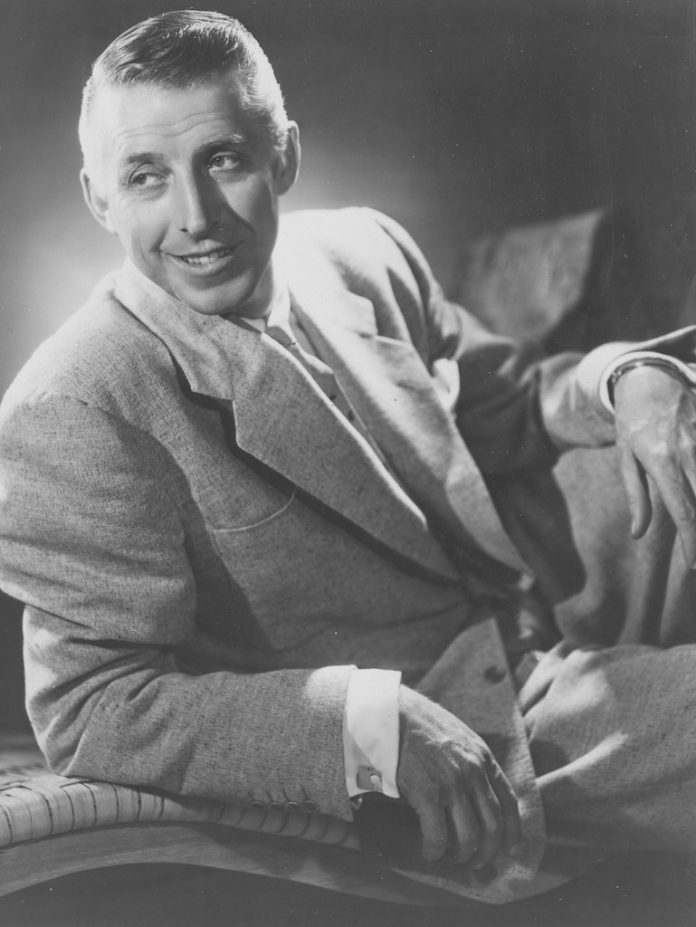In the 1940s, jazz lovers had a universal derogatory term: ‘commercial’. It encompassed the chromium-plated tastelessness of Harry James’s Orchestra, the pretentiousness of Artie Shaw and his violins, Tommy Dorsey as ‘the sentimental gentleman of Swing’, the flashiness of Goodman’s showy pieces, the slush of Miller’s clarinet-led saxophones. ‘Commercial’ contrasted with the good stuff: Bechet, Eldridge, Basie, Ellington, Goodman’s sextet, the Gordon Gang etc. Yet even James, Shaw, Dorsey, Goodman, yes, even Miller, had their rewards: the odd out-and-out swinger, the band-within-the-band, the featured soloist.
It required a pianist called Stan Kenton, abetted by Capitol Records, to amalgamate tastelessness, pretentiousness, showiness and slush, together with dissonance (pinched from Ellington), to produce, under the name of Progressive Jazz, some of the nastiest music yet to carry the name jazz. All this happened towards the mid forties and I, like many another, developed a cordial distaste for Progressive Jazz. It has been my good fortune neither to possess nor to review a Kenton record, so I received this pair with some curiosity. Kenton from the pre-Progressive days? Would it reveal where I missed out? Would I learn why some people seem actually to like his stuff?
Far from it. These are tracks recorded in Hollywood for broadcasts and they are about as dull as any commercial swing from their period. All the influences are there: echoes of Shaw, James, Miller. The celebrated 5-part saxophone writing is not a patch on Ellington’s and the brightest bits echo Goodman (eg: Quit Your Shovin’). The announcer, whose banalities introduce each track, refers to “that fiery Kenton surge” – and it is true that when left to blow with just rhythm, Alvarez, Ordean and Dorris sometimes get some drive going. But their Master’s arrangements soon bring things to a grinding halt with the rhythmic subtlety of a clog dance. We are spared the discords of the later Progressive era and all that is left is Old Swing.
The sound is excellent for its period; the studio audience enthuses wildly; the music is so nondescript that even Dorris’s catastrophic singing doesn’t matter. Anyone want a couple of early Kentons?
John Postgate
Discography
Artistry In Rhythm; Tempo De Joe; Night Life; Marvin’s Mumble; I Haven’t Got The Heart; Elegy; Love Turns Winter Into Spring; El Choclo (19.20) – Safari; Trumpet Symphonette; A Little Jive Is Good For You; Prelude To Nothing; Flamingo; Take It From The Oven; Balboa Bash; Artistry In Rhythm (20.40)
VOL II
Congo Clambake; Arkansas Traveller; Shuffling The Chords; Take Sixteen; Suite For Saxophones (Opus In Pastels; A Reed Rapture; Etude For Saxophones; Tribute To A Flatted Fifth) (19.09) – Quit Your Shovin; Underneath The Stars; Let Her Go; Too Soon; Hold Back The Dawn; Low Bridge; Popocatepetl; Blue Fare (20.00)
Chico Alvarez, Frank Beach, Earl Collier (t); Dick Cole, Harry Forbes (tb); Jack Ordean, Bill Lahey (as); Red Dorris (ts/cl/v); Ted Romersa (ts); Bob Gioga (bs); Stan Kenton (p); Al Costi (g); Howard Rumsey (b); Marvin “Pee-wee” Georgs (d). MacGregor Studios, Hollywood, mid-August to 19/9/41.
(London HM-P 5049 and 5055)
















